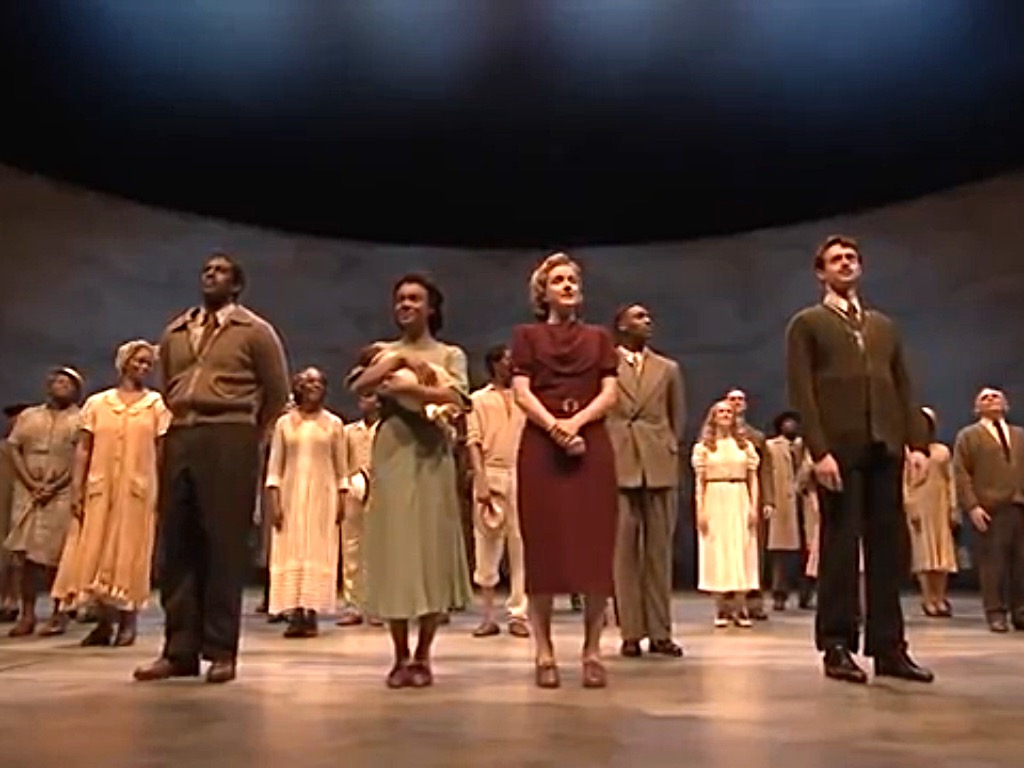That she was rejected was not surprising and so were her feelings of indignation and hurt. Hortense was confident she would find a teaching position when she joined her husband Gilbert in the UK. After all, she had worked as a teacher’s assistant for an American teacher in Kingston and had her official credentials. But her small island self-confidence was met with small-mindedness on the big island – she was not the right color. This scenario is one of the pivotal scenes in Small Island, a play by Helen Edmundson based on the novel of the same title by Andrea Levy.

Streamed by National Theatre from June 8 to 15, Small Island chronicles the interconnected lives of Hortense, Queenie, and Gilbert against the convoluted history of the UK and Jamaica during WWII. The play would have been another story based on history for me had it not been for the BBC video of anti-racism campaigner Roy Hackett I saw prior to Small Island. He shared the difficulty of getting a flat in the UK because people of color were rejected (doors were slammed on his face), of how he was always told by people to go back where he came from, and of how the people protested against him living in an all-white neighborhood after he had purchased a house in the neighborhood. Hackett arrived in the UK in 1952 onboard the Windrush and eventually made Bristol his home.
Racism isn’t new. It is ignored or glossed over, but it never disappears. It is seething below the surface of society’s fabric until it explodes. It is an issue that I am no stranger to. It is an issue that Small Island spotlighted that is easy to grasp because racism is relatable. Like Hortense, I have experienced how one’s skin and the allegedly wrong accent are used to diminish one’s being by those feeling superior. Hortense’s experiences were mine and vice versa. In my life experience, being a Filipino who spoke and taught English literature and writing was always a cause for disbelief and derision by colleagues and students. I was bypassed for an inexperienced British woman to head the school’s English department then despite my qualifications and years of teaching experience in high school and university levels. My nationality had me proving myself to a multitude of students who thought highly of themselves because of their light skin and their country’s First World rank. One local student even ventured to teach me how to pronounce words like the Queen’s Received Pronunciation – to get credibility he said – even though my neutral accent was fine.

I was a bit of Queenie too. Queenie longed to escape the humdrum life of a butcher’s child in Lincolnshire. She managed with the help of her aunt who offered her a job in the city where she met Bernard. Stoic and flat Bernard was her way out of not returning home after her aunt’s death so she married him. In the course of Bernard’s absence, having been given up for dead, she met Michael who made her come alive even for a brief moment. The problem was Queenie is British and Michael is Jamaican, and society strictly forbade interracial relationships. A Filipino inverted that situation vis-à-vis my experience: a British man would never have deigned to date a Filipino like me. She simply couldn’t and wouldn’t accept that I had dated a British.


There was some Gilbert in me to boot – bonhomous and caring Gilbert. Moving forward in a hostile environment is how it should be in life, but a society that cannot see beyond one’s color has a way of slowly chipping away at a can-do attitude, tempering it into survival mode, and destroying dreams. But thank the universe for the likes of Gilbert who carried on dreaming of being a lawyer someday despite the tribulations he faced constantly. Like Gilbert, I have survived the landmines of racism and continue to survive albeit I have become chary of people and their motives.


Small Island was streamed to commemorate the Windrush anniversary, but its coincidental showing with the Black Lives Matter movement gaining rapid momentum seemed a propitious stroke from the universe in having the glossed over issue take the spotlight. Racism is ugly and painful and affects every person. Its relatability is the first step in addressing it, but it shouldn’t stop at sharing experiences and developing empathy. Lamentably, racism has become caught in a jam, viewed only as an experience of the minority or something to be hidden in jokes or platitudes about racial harmony and respect. Small Island has already taken that step in exposing an era’s bigotry which clearly mirrors its insidious link to the present and future. The next step people should take is a continued, deliberate reframing of the concept of race until color and small-mindedness have no place in decision-making matter anymore.
